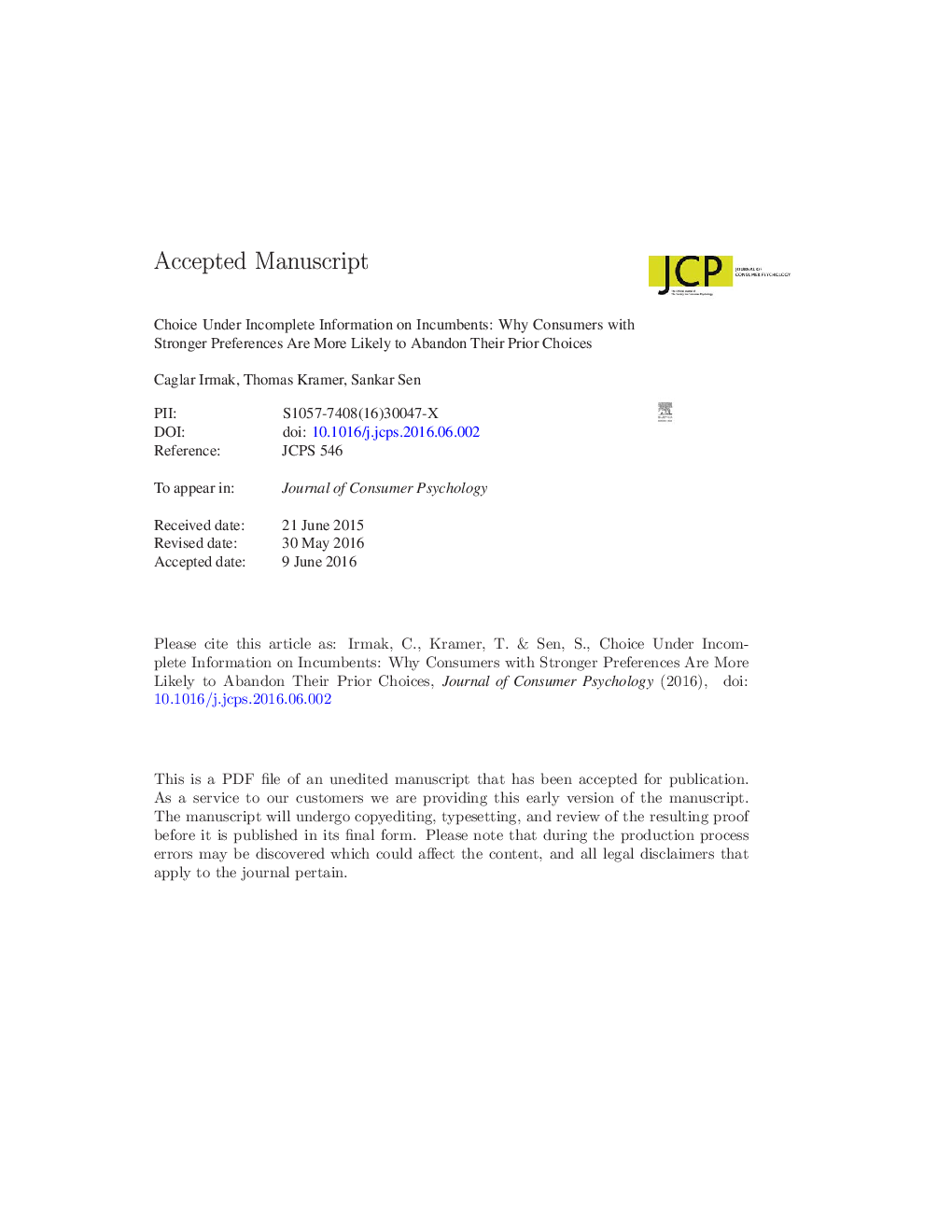| Article ID | Journal | Published Year | Pages | File Type |
|---|---|---|---|---|
| 5034246 | Journal of Consumer Psychology | 2017 | 22 Pages |
Abstract
Consumers often encounter information about new brands that is not available for their preliminary or prior choices. For example, continued browsing might expose consumers to information that is unknown for an option they already placed in their shopping cart. How might preference strength affect their reactions to such missing information on their prior choices? Much research suggests that consumers with strong prior preferences are likely to employ motivated reasoning to bolster and retain the preliminary choice. However, we document a heretofore unexamined condition under which those with relatively stronger prior preferences for an incumbent are more likely to abandon it than those with weaker prior preferences. We argue that this occurs because those with relatively stronger (vs. weaker) prior preferences experience more cognitive dissonance when information on new attributes is missing on just the incumbent but not on its competitors.
Related Topics
Social Sciences and Humanities
Business, Management and Accounting
Marketing
Authors
Caglar Irmak, Thomas Kramer, Sankar Sen,
